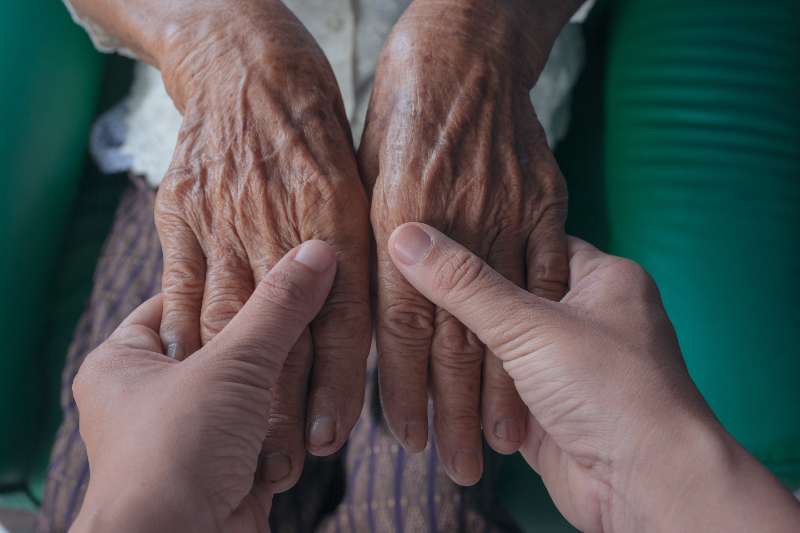During these uncertain times, if you're looking for the best lawyer in Sydney CBD, NSW, Jeffrey of JCL Legal is available by mobile phone. Please call him on 0419 233 670.
Understanding Advance Care Directive In NSW
An Advance Care Directive is a legal document that sets out your wishes in the event that you seriously ill or injured and unable to make or communicate your wishes regarding medical care and there is no likelihood of recovery. You will have appointed a person who you wish to make those decisions, should you ever be in that situation.
With the advent of modern medical technology, there is the equipment to prolong the life of a person without the ability to necessarily provide the quality of life which you wish or even find acceptable due to lifestyle choices or medical costs. Such a directive will allow your nearest and dearest to make appropriate decisions regarding your treatment.
Advance Care Directives, or ACDs, are becoming more popular with older Australians because it provides you with the ability to make choices about your future care if you lose the capacity to make those choices later on. It is never too early to document your wishes in an Advance Care Directive.
Types Of Advance Care Directives
Australia has two types of Advance Care Directives:
Common Law Advance Care Directives
These are recognised by the common law (decisions made by judges in the courts) and generally must be followed. These types of Directives exist in all States and Territories except Queensland.
Statutory Advance Care Directives
These are governed by State and Territory legislation. These types of Directives exist in all States and Territories except New South Wales and Tasmania.
Mental health legislation in Victoria and the Australian Capital Territory also allows people with mental health conditions to make specific types of Directives about their treatment preferences. Mental health Advance Care Directives are generally not about the end of life decision-making so are not discussed further here.
Who Can Make An Advance Care Directive?
Once you turn 18 and you have full decision-making capacity you can make an Advance Care Directive. Full decision-making capacity means that you can:
• freely and voluntarily make health care decisions
• adequately communicate your decisions
• show that you understand your decisions and their consequences
• show that you understand the contents of your ACD.
When Should You Make An Advance Care Directive?
As soon as possible is the best time to write your ACD, while you're healthy and before you experience a critical health condition. Some situations might make completing an ACD more urgent, for example:
• you are going in for major surgery
• you have a medical condition that could affect your decision-making ability or cause serious complications in the event of an accident, such as heart or kidney disease, asthma or diabetes
• you are elderly or nearing the end of your life.
Types Of Treatment That Can Be Covered By An Advance Care Directive
Advance Care Directives can be used to communicate specific instructions about particular types of medical treatment such as:
• blood transfusions
• artificial hydration and nutrition (food and water provided through a tube into the stomach, intestine or vein)
• cardio-pulmonary resuscitation, to maintain a person’s heartbeat
• assisted ventilation, to support a person to breathe if their lungs stop functioning.
People can also use Advance Care Directives to express general wishes about care and medical treatment, or directions about the quality of life they expect if they lose capacity. For example, a person might specify they would like to die at home rather than in hospital, or that they do not wish to receive treatment if they have an incurable terminal illness. A person might also include personal information relevant to their own care, for example, other health conditions, or details of their religious, spiritual or cultural beliefs.
Some Advance Care Directives can also be used to appoint a substitute decision-maker to make health care decisions on behalf of the person if they no longer have the capacity to do so. A substitute decision-maker could be a spouse, family member or friend.
Advance Care Directives cannot be used to ask another person to deliberately end the life of the person making the directive (for example, through euthanasia or voluntary assisted dying.
Changes And Revocation
An Advance Care Directive ends when a new Advance Care Directive is completed, a person with capacity revokes their Advance Care Directive, or it expires (if an expiry date is included), or the person who made the directive dies.
An enduring guardianship appointment ends if a person with capacity revokes the appointment of their enduring guardian(s) if the person who made the appointment dies or marries, or if one of the guardians dies, resigns or becomes incapacitated and they were appointed jointly (unless otherwise provided in the form).
Under certain circumstances, the New South Wales Civil and Administrative Tribunal (NCAT) can cancel an Advance Care Directive or enduring guardian(s) appointment or issue a guardianship order which suspends any appointment of an enduring guardian.
Hire The Best Lawyer in Sydney Who Cares About Your Needs
Whilst an ADC can be written without legal advice, I strongly believe that your ADC should be an integral part of an Enduring Guardian. Your Enduring Guardianship can be subject to a report from a geriatric specialist or a psychiatrist who specialises in aging.
It's a good idea to check with your local family law office if you have questions or concerns regarding this matter. Our family lawyers are amongst some of the best in Sydney, who will take the time to listen to your concerns and work with you to determine the best way forward.
At JCL Legal, we consider your whole situation and take the time to understand your feelings and your needs. Contact us now and talk to one of the best Sydney lawyer!
sources: owenhodge.com.au, health.nsw.gov.au, barecremation.com.au, sahealth.sa.gov.au, advancecareplanning.org.au, agedcareguide.com.au, end-of-life.qut.edu.au, eldac.com.au, mauriceblackburn.com.au



































